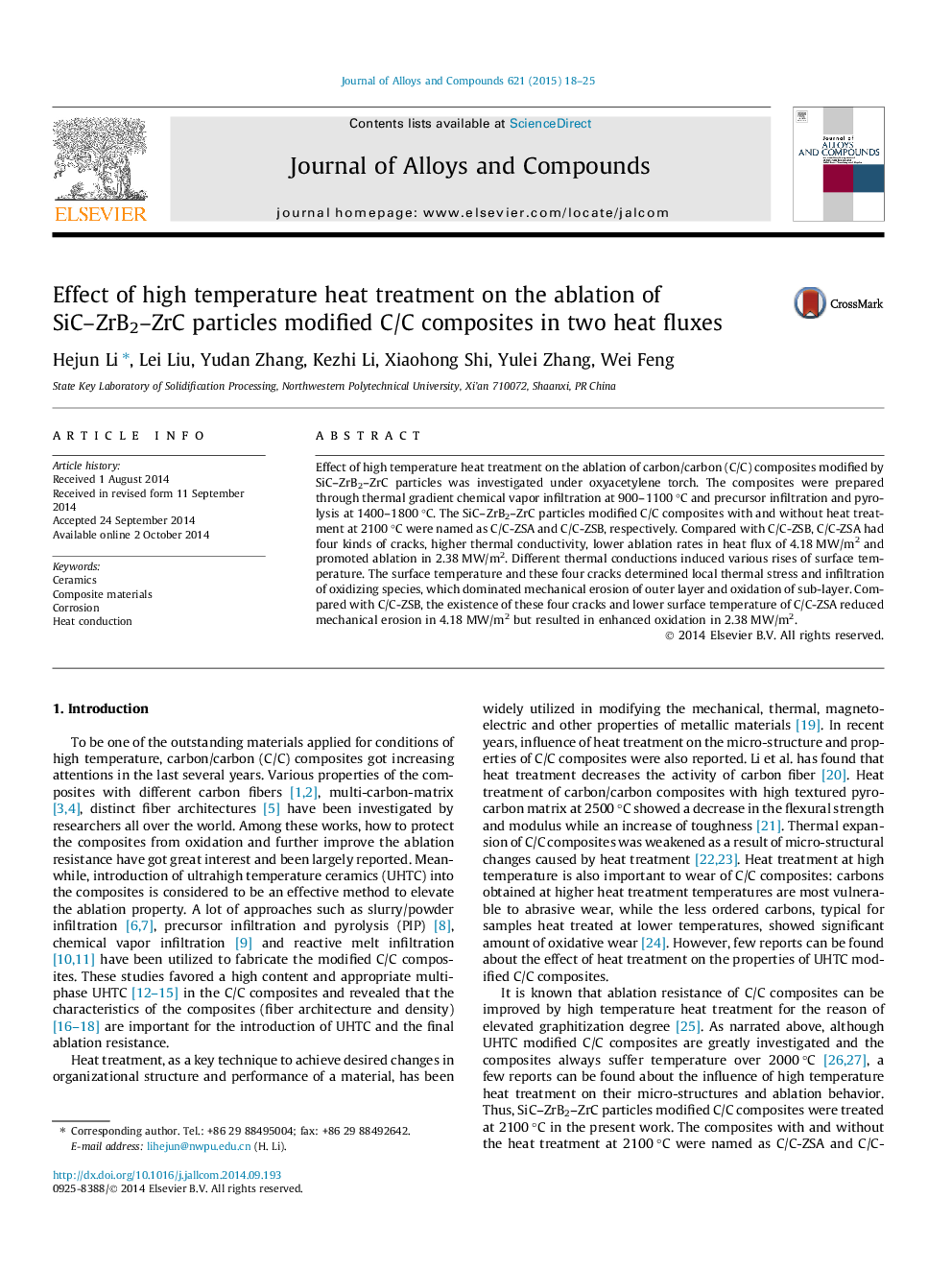| Article ID | Journal | Published Year | Pages | File Type |
|---|---|---|---|---|
| 8000022 | Journal of Alloys and Compounds | 2015 | 8 Pages |
Abstract
Effect of high temperature heat treatment on the ablation of carbon/carbon (C/C) composites modified by SiC-ZrB2-ZrC particles was investigated under oxyacetylene torch. The composites were prepared through thermal gradient chemical vapor infiltration at 900-1100 °C and precursor infiltration and pyrolysis at 1400-1800 °C. The SiC-ZrB2-ZrC particles modified C/C composites with and without heat treatment at 2100 °C were named as C/C-ZSA and C/C-ZSB, respectively. Compared with C/C-ZSB, C/C-ZSA had four kinds of cracks, higher thermal conductivity, lower ablation rates in heat flux of 4.18 MW/m2 and promoted ablation in 2.38 MW/m2. Different thermal conductions induced various rises of surface temperature. The surface temperature and these four cracks determined local thermal stress and infiltration of oxidizing species, which dominated mechanical erosion of outer layer and oxidation of sub-layer. Compared with C/C-ZSB, the existence of these four cracks and lower surface temperature of C/C-ZSA reduced mechanical erosion in 4.18 MW/m2 but resulted in enhanced oxidation in 2.38 MW/m2.
Related Topics
Physical Sciences and Engineering
Materials Science
Metals and Alloys
Authors
Hejun Li, Lei Liu, Yudan Zhang, Kezhi Li, Xiaohong Shi, Yulei Zhang, Wei Feng,
